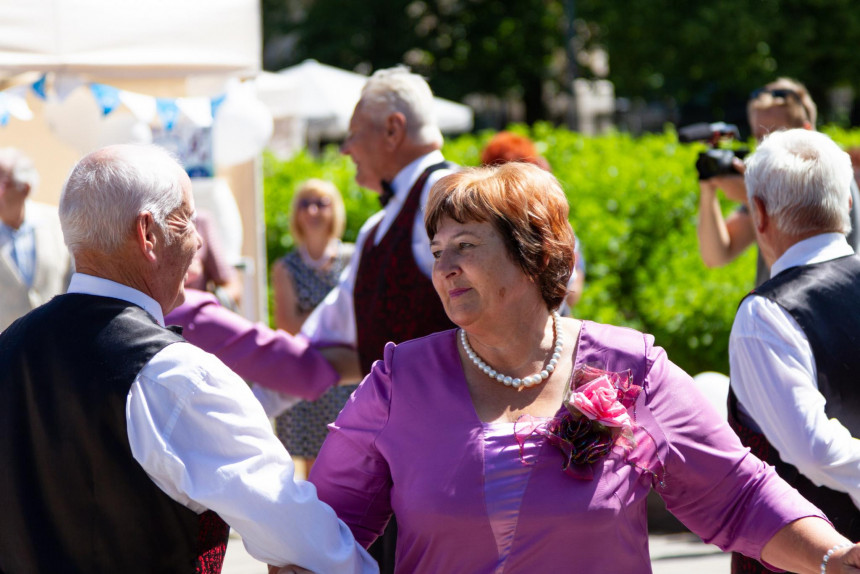Survey: what are people in Latvia giving up as they get older?

Almost 40% of people in Latvia say they are afraid of getting older, but even more have experienced discrimination because of their age. Most commonly age discrimination is experienced in the workplace.
A study carried out as part of a social campaign on ageing and our attitudes to it found out what people in Latvia have had to give up because of their age. It is not only careers and education, but also relationships and friends.
Afraid of growing old, but feel younger than they are
Tele2 is using a social campaign to draw the attention of Latvians to ageism and how prejudices about age limit each individual and their relationships with others. The Ombudsman's Office explains that ageism is the way we think, feel and act about age and ageing. At the level of feelings, it is prejudice, but at the level of thinking, it is stereotypes about what age is, how people should live when they reach a certain age, what they are or are not entitled to. At the level of action, ageism could take the form of discrimination.
The data from the survey conducted by Tele2 and Norstat reflect the feelings of the Latvian population about ageing. 40% of respondents said they were afraid of ageing, and young people aged 18-29 were the most likely to feel this fear. However, people of retirement age are also afraid of growing old, with at least a third of people aged over 60 saying this.
Interestingly, men are more likely than women to say they are afraid of growing old.
At the same time, more than half (64%) of people say they feel younger than they really are. And when asked what helps them feel young, 52% of respondents say that modern technology and its use help them feel young, 48% socialize and meet friends, 44% study and learn new things, and 43% have a healthy lifestyle.
Some have given up a career because of age
Half of the respondents believe that there is age discrimination in Latvia. A quarter of respondents disagree, but the same proportion say they do not know if such discrimination exists because they may not have experienced or heard about cases of such discrimination. At the same time, 74% of those who have experienced discrimination felt it most in the workplace. The second place where most people experience age discrimination is on social networks.
36% of respondents have given something up because of their age, and most commonly it was entertainment options (54%). However, they have also had to give up careers and education because of their age. A fifth of people aged 60-74 have given up relationships and love, as well as hobbies (16%), because of their age. Fortunately, very few people have had to give up friends because of their age.
Giving up on dreams not because of age but because of laziness
Age 50 and above were the years when most people gave up on their dreams. However, the same proportion of people at this age and in their retirement years say that they have never dreamt or set any dreams in their life. And when asked what prevents them from realizing their dreams, most do not say: their age. The most common reason is lack of money, followed by laziness, fear of failure and not knowing where to start.
"Nowadays we are guided by stereotypical ideas of what is age and what is youth, although these age boundaries have shifted - according to the latest World Health Organisation generational breakdown, people under 65 are considered young and socially capable," says Zanda Rubene, a professor at the University of Latvia, commenting on the survey results.
"We are living longer - around 80 to 90 years, social constructs associated with age have changed, but public perceptions of who is young and who is old are still associated with a life that lasts 60 to 70 years.
This leads to many stereotypes, for example about when people should get married, when they should study or when they should change careers." The professor points out that old age is nowadays perceived as something to be condemned, which is why people are afraid of it and why people pay a lot of money to make them look and feel young.
According to a survey, almost 15% of people in Latvia have deliberately hidden their age in order not to be discriminated against. "The fear of ageing can be reduced if we are able to distinguish between biological age as a number of years and the social construct of age. The main question that should be asked at any age is: is the life you are living yours? And in this case, the question of ageing is irrelevant," says Zanda Rubene.
*****
Be the first to read interesting news from Latvia and the world by joining our Telegram and Signal channels.
